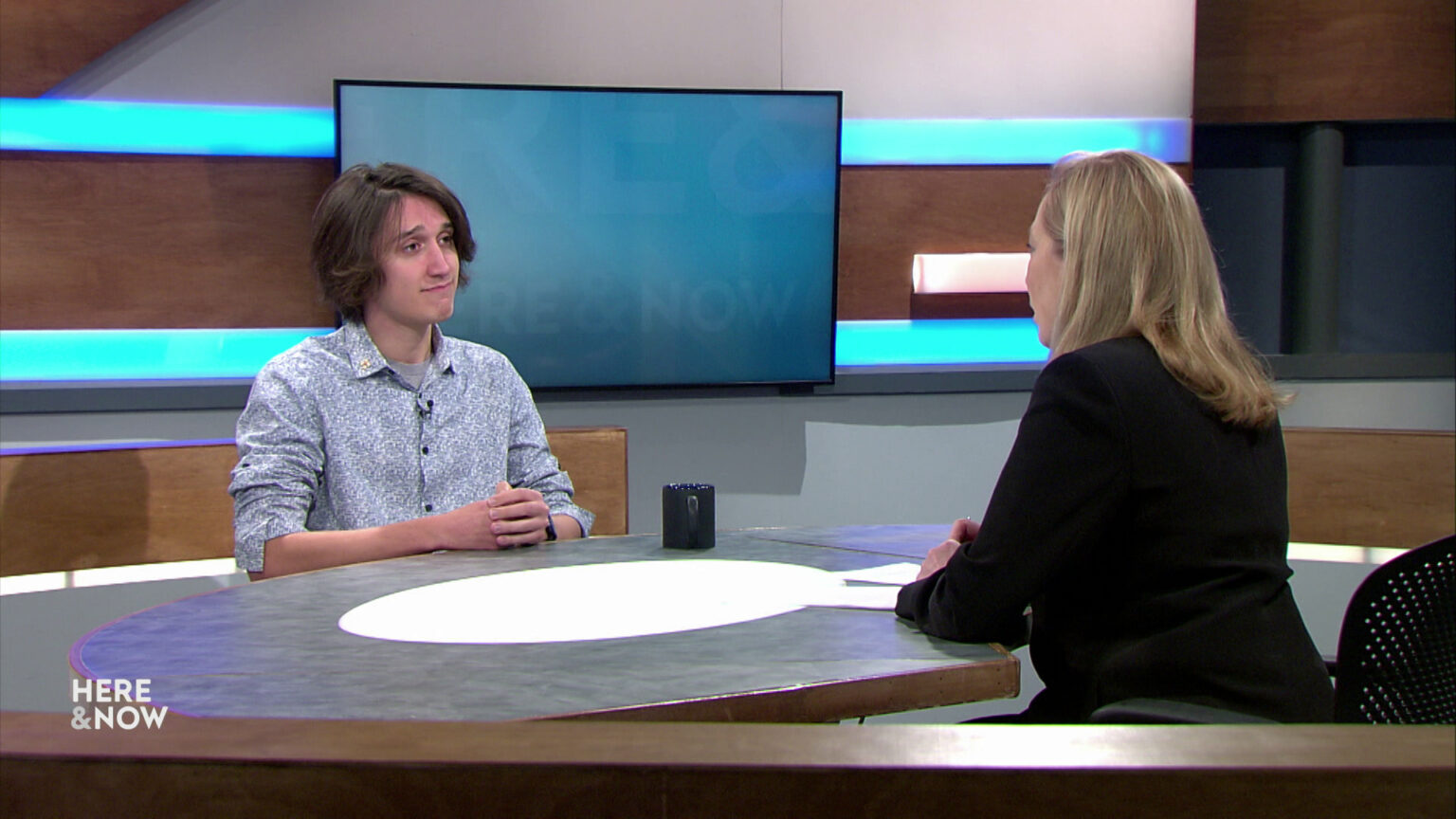'Here & Now' Highlights: Dominic Zappia, Rep. Greta Neubauer, County Executive David Crowley
Here's what guests on the Dec. 15, 2023 episode said about student reactions to UW regents voting to scale back DEI efforts, what Assembly Democrats are anticipating in 2024, and the financial situation for Milwaukee County.
By Frederica Freyberg, Kristian Knutsen | Here & Now
December 18, 2023

Dominic Zappia and Frederica Freyberg (Credit: PBS Wisconsin)
The back-and-forth votes over a deal that exchanged state funding for DEI restrictions focused on staffing and pay, but students their own perspectives on the politics of higher education — UW-Madison student government leader Dominic Zappia shares his thoughts. Wisconsin Assembly Minority Leader Greta Neubauer looks back at lawmaking over 2023 and considers what the redistricting case before the state Supreme Court could mean for Democratic legislators in the upcoming election year. With a boost in state shared revenue funding going to municipal governments, the Brewers getting a half-billion dollars for their stadium and plans for the Republican National Convention, Milwaukee County Executive David Crowley looks ahead to 2024.
Dominic Zappia
Vice Chair, Associated Students of Madison
- Universities of Wisconsin regents voted on Dec. 9 to reject a deal made between UW President Jay Rothman and Republican lawmakers to cut back campus efforts related to promoting diversity, equity and inclusion one day after it was announced. Following a closed-door session several days later, though, the regents held another vote on Dec. 13, with three switching their position to approve the proposal. In advance of the latter vote, the UW-Madison student organization ASM issued a statement declaring that changes to DEI programs to repurpose them to student achievement “disparages the prospect of belonging at our University.” Zappia said the Regents vote puts into question the UW’s commitment to students.
- Zappia: “I think the feeling among students is we’re disappointed and disheartened. I don’t think this was a surprise for us as much. I think we’ve kind of seen it coming. But the signal this sends to marginalized students on campus — that there’s not a place for them, that they don’t have that sense of belonging, that this university isn’t willing to put money to support those students — is frustrating.”
Assembly Minority Leader Greta Neubauer
D-Racine
- This interview is part of a series of conversations with Wisconsin’s legislative leaders at year’s end. Rep. Neubauer discussed the new balance of power in the Wisconsin Supreme Court and what the redistricting case could mean for Democratic lawmakers in 2024 with a liberal majority on the court.
- Neubauer: “We are seeing the case move forward in the Supreme Court right now challenging Wisconsin’s gerrymandered legislative maps. People around Wisconsin understand that when about 50% of the votes go to Democrats and that results in a third, roughly, of the seats in the state Assembly and state Senate, something is wrong. Wisconsin is classified as a democracy desert. And that means that the people of Wisconsin’s priorities are just not reflected in the bills that move through this body. So we are, of course, hopeful that there will be fair maps that allow for really competitive elections in a bunch of seats in the state Assembly and the state Senate next year. I think that that will mean that the people of Wisconsin are better represented.”
County Executive David Crowley
Milwaukee County Executive
- The increase in shared revenue funding directed to local governments by the state that was passed as part of the Wisconsin Legislature’s 2023 budget process is bolstering the priorities of Milwaukee County — at least for a few years. Crowley described how a greater share of tax revenues going to municipalities is allowing the county to make more investments that include housing, transit and criminal justice. However, the effects of this boost aren’t projected to continue indefinitely.
- Crowley: “So yes, we will have a budget surplus for the next two years, but our operations will see a deficit moving forward in about 2027 or 2026, so it is my goal to continue to build upon the relationships that we’ve created with the state of Wisconsin, as well as the federal government, to bring back resources. But one infrastructure project that I would love to tackle in the next upcoming years is really our public safety building.
Watch new episodes of Here & Now at 7:30 p.m. on Fridays.
 Passport
Passport











Follow Us